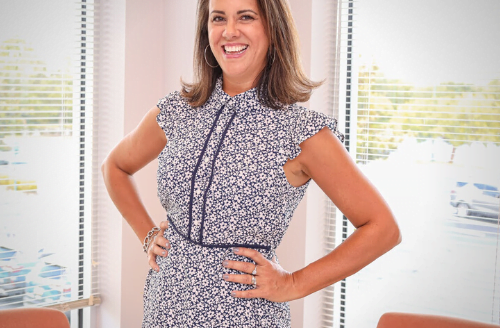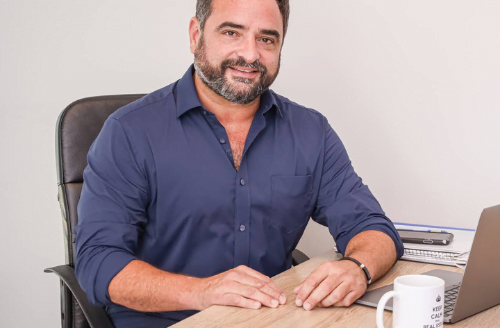WHY CHOOSE MAGIC FLORIDA?
We specialize in real estate consulting for Brazilians in Florida. With experience and competence, we will assist you in finding the best option for your desires and needs.
TO LIVE
BUY WITH US
TO INVEST
CONSULTANCY
MEET OUR TEAM
Always maintaining professionalism, Magic Florida continues to seek new challenges and remains open to welcoming new clients.

Fernanda Trein

Emidio Dias
TESTIMONIALS
Some words from our clients and business partners
Frequently Asked Questions
We've selected some of the most frequently asked questions about real estate transactions, so you can clarify them here on the website.
In real estate transactions in Orlando, it’s typically the seller who pays the real estate agency commission. This commission is usually a percentage of the final sale price and is agreed upon in the listing agreement between the seller and the real estate agent. However, it’s important to note that these details can vary, and the terms of commission payment may be negotiated as part of the overall real estate transaction
To finance a property in Orlando, you can explore various mortgage options provided by banks and financial institutions. The process involves applying for a mortgage loan, which will be subject to approval based on factors such as your credit score, income, and other financial considerations.
It’s advisable to consult with a mortgage broker or lender in Orlando to discuss the available loan programs, interest rates, and the specific requirements for obtaining a mortgage. Additionally, working with a real estate agent and a mortgage professional can help guide you through the financing process and ensure a smoother home-buying experience.
Yes, it is possible to finance properties that are still under construction in Orlando. This type of financing is often referred to as a construction loan or a construction-to-permanent loan.
With a construction loan, you can secure financing to cover the costs of building the property. Once the construction is complete, the loan can be converted into a traditional mortgage. It’s important to note that the specifics of construction financing can vary, and it’s recommended to work closely with a mortgage professional or financial institution to explore the available options and understand the terms and conditions associated with financing a property under construction.
In Orlando, the term “habite-se” is equivalent to the Certificate of Occupancy (CO) in the United States. The CO is a document issued by local authorities, typically the building or planning department, confirming that the construction has been completed in accordance with applicable building codes and regulations.
The Certificate of Occupancy is crucial as it allows the property to be inhabited or used for its intended purpose. Before closing the purchase of a property, it’s important to ensure that the Certificate of Occupancy has been issued to verify that the property complies with local standards and is ready for occupancy.
In Orlando, Florida, the cost to register a property can vary depending on the property value and other factors. The documentary stamp tax, commonly known as “doc stamps” in Florida, is one of the fees associated with property registration and is calculated based on the total transaction value. The percentage can vary, but it is commonly around 0.70% of the total sale value.
Additionally, there is the intangible tax, which is an additional tax based on the financing amount if there is financing involved in the transaction. It’s recommended to consult with a local real estate professional or an attorney specializing in real estate transactions in the area to obtain specific information about the costs of registering a property in Orlando.
Obtaining a Certificate of Occupancy (CO), or “Habite-se,” for a property in Orlando involves following certain steps and complying with local regulations. Here is a general overview:
Construction Completion: Ensure that all construction work on the property is completed in accordance with the approved plans and local building codes.
Inspections: Schedule inspections with the local building department. Inspections may cover various aspects of the property, including electrical, plumbing, and structural elements.
Compliance: Ensure that the property complies with all zoning regulations and building codes. Any issues identified during inspections may need to be addressed before a CO can be issued.
Documentation: Prepare all necessary documentation, including plans, permits, and any other paperwork required by the local authorities.
Application: Submit an application for a Certificate of Occupancy to the local building department. This may involve paying applicable fees.
Inspection Approval: Once the property passes all necessary inspections and meets the requirements, the local authorities will issue the Certificate of Occupancy.
It’s important to note that specific procedures can vary depending on the city or county regulations in Orlando. Engaging with a local architect, builder, or consultant who is familiar with the local processes can be beneficial. Additionally, working closely with the local building department throughout the construction process can help ensure a smoother application for the Certificate of Occupancy.
Yes, it is possible to finance a commercial property in Orlando. Financing options for commercial real estate may include commercial mortgages, loans, or other financial products designed for businesses and investors.
Here are some key points to consider:
Commercial Lenders: Look for banks, financial institutions, and commercial lenders that offer financing for commercial properties in Orlando. These lenders specialize in providing loans for business properties.
Loan Terms: Commercial real estate loans may have different terms compared to residential mortgages. Loan terms, interest rates, and repayment schedules can vary based on factors such as the type of property, its intended use, and the borrower’s financial qualifications.
Down Payment: Commercial real estate loans typically require a larger down payment compared to residential mortgages. The down payment percentage can vary, but it is commonly higher than what is required for residential properties.
Business Plan: Lenders may evaluate the business plan for the commercial property, including potential rental income, the financial stability of the business, and the overall viability of the investment.
Consultation: It’s advisable to consult with commercial real estate professionals, mortgage brokers, or financial advisors who specialize in commercial transactions to explore the available financing options and understand the specific requirements.
Keep in mind that the financing process for commercial properties can be more complex than residential properties, so seeking guidance from professionals experienced in commercial real estate transactions is recommended.


